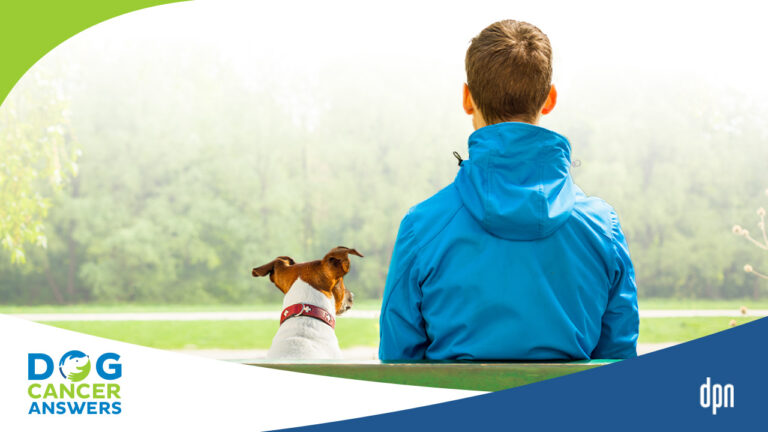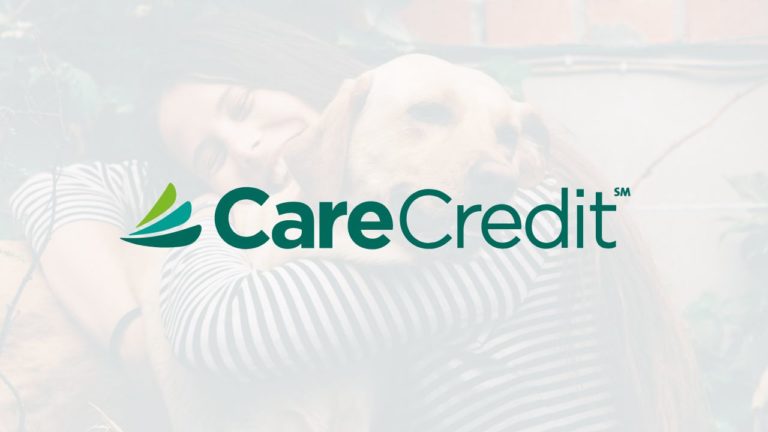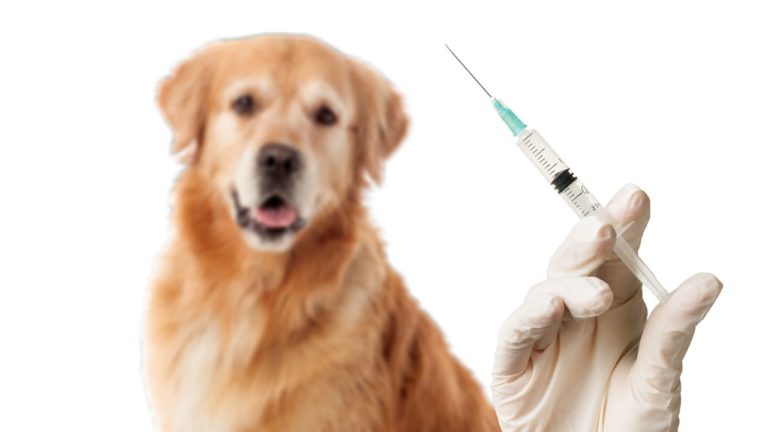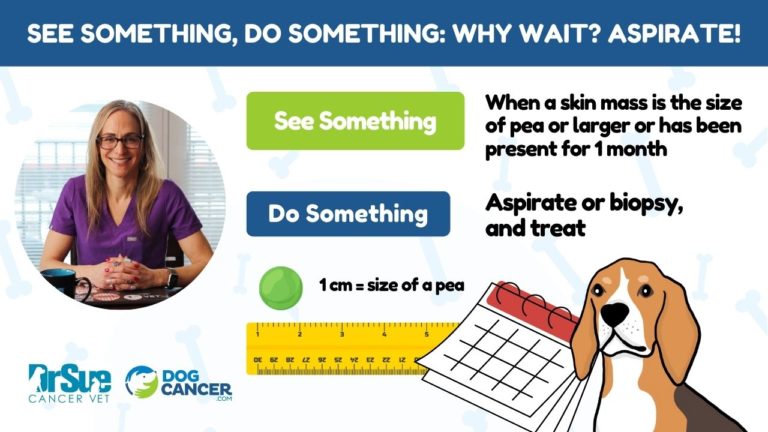A Common Dog Cancer Mistake: Doing Too Many Diagnostic Tests Before Seeing the Oncologist
Which tests do you need to run to get an accurate diagnosis? And who should run them? And when? Bringing an oncologist onto your team earlier rather than later may save you time AND money in the long run.
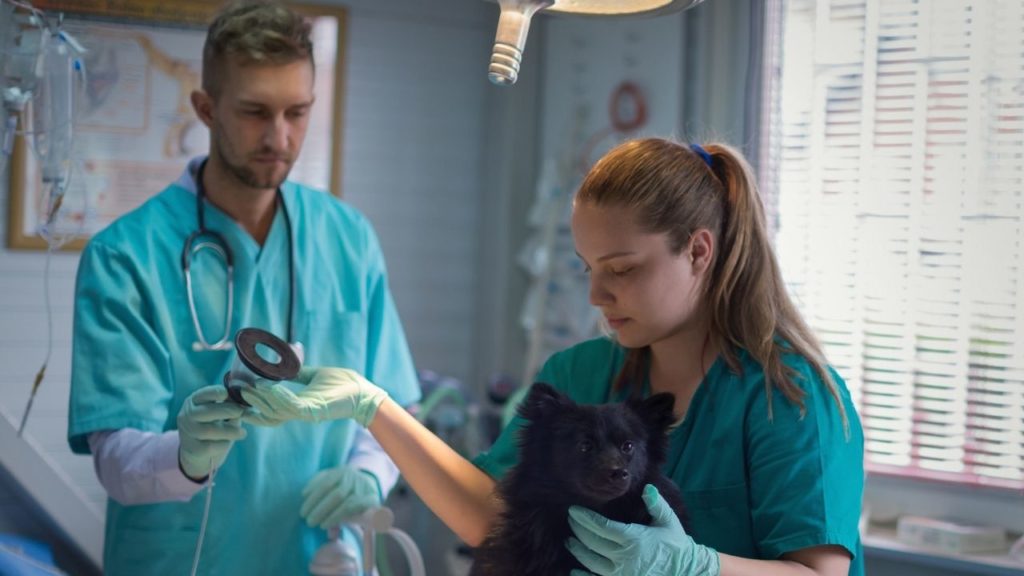
Read Time: 3 minutes
When you first hear your dog has cancer, you may panic and feel that everything must be done, and done now. It’s true, cancer is an urgent situation, and it’s a great idea to find out as much information about your dog’s cancer as is possible.
But how many diagnostic tests should you have your vet run, and when?
The answer to this question depends on many factors, and there is no one-size-fits-all advice I can give you.
Conventional Treatments Require Diagnostic Tests
I can tell you this: if you think you’re going to opt for conventional treatments (surgery, chemotherapy, radiation) you should budget for diagnostic tests. That’s because we need diagnostics to plan out and use these treatments.
After your vet tells you the devastating news that your pet has cancer, he or she may recommend you do some imaging tests, most commonly chest X-rays or abdominal ultrasound. This is called staging, and it is looking for cancer elsewhere to see how far advanced it is. With blood work and urine, which are always necessary, all of these tests may cost over $1000. I sometimes see lymphoma patients who are told these ALL need to be done before they come see me.
They may not necessarily need them, though.
What If You’re Not Going to Treat Your Dog with Conventional Treatments?
If you’re not going to use conventional treatments, whether because of budgetary reasons or personal preferences, getting all of these diagnostics done may feel like wasted money and time. This is too often the case in my own practice, when I see new clients who have reams of tests for me to review … but then realize they can’t or don’t want to treat their dogs with my tools.
It’s particularly sad and frustrating when clients have already spent their whole budget on diagnostics. Many would have used that money to treat had they known beforehand that the diagnostics weren’t all necessary for their dog’s situation.
Get an Oncologist Involved Early
An oncologist can help you decide which tests to run in the first place if you bring them on board early in the process. When you get that first fine needle aspirate result, that is probably the best time to bring someone with my experience onto your team. Why?
Because I can give you a realistic idea of what you’re up against based on my own experience. All I do all day is review lab results for cancer — so I can often save you time and money in the long run. And yes, you can bring someone like me in even before the biopsy is done — and certainly immediately after.
Depending on the case and cancer, I will discuss with patients the pros and cons of eliminating certain staging tests.
For example, if a dog with lymphoma is having difficulty breathing, I will strongly encourage we get the chest X-rays. But for other cases, we may skip certain tests and apply those funds towards treatment.
As another example, if we are going to do a CT scan of the head for an oral or nasal tumor, we can also do a CT scan of the chest, which is more cost-effective than doing a separate X-ray to look for chest spread. (Most veterinarians have X-ray machines, but few have CT scans.) If you came to me with a dog with a nasal tumor, I would hold off doing an X-ray and instead use the CT scan. This saves you money and gets us a better chest image to work with.
I wish there were a “checklist” of tests and treatments I could give out to make this whole process easier, but there isn’t. Every case, every budget, every dog, every owner is different. That’s why …
It’s OK to Wait to See the Oncologist
Every cancer case is different, and what is important to test in one case may be irrelevant in another. Just as you would wait to see a human oncologist to get diagnostics done for a mass on your own body, it’s OK to wait to do diagnostics until you see an veterinarian oncologist. (Or if you live in an area with few or no oncologists, ask for your vet to do a phone consult with one.) Specialists like me can adjust the staging tests we recommend based on your dog’s case and your budget and personality.
Cancer is expensive to treat even if you just make the dietary and supplement changes we recommend in The Dog Cancer Survival Guide. For the vast majority of us, every dollar counts … and an oncologist can help you spend each one more wisely.
Live Long, Live Well
Dr. Sue
Editorial Note: This post was originally published on a retired blog about dog cancer.
Sue Ettinger, DVM, Dip. ACVIM (Oncology)
Topics
Did You Find This Helpful? Share It with Your Pack!
Use the buttons to share what you learned on social media, download a PDF, print this out, or email it to your veterinarian.



